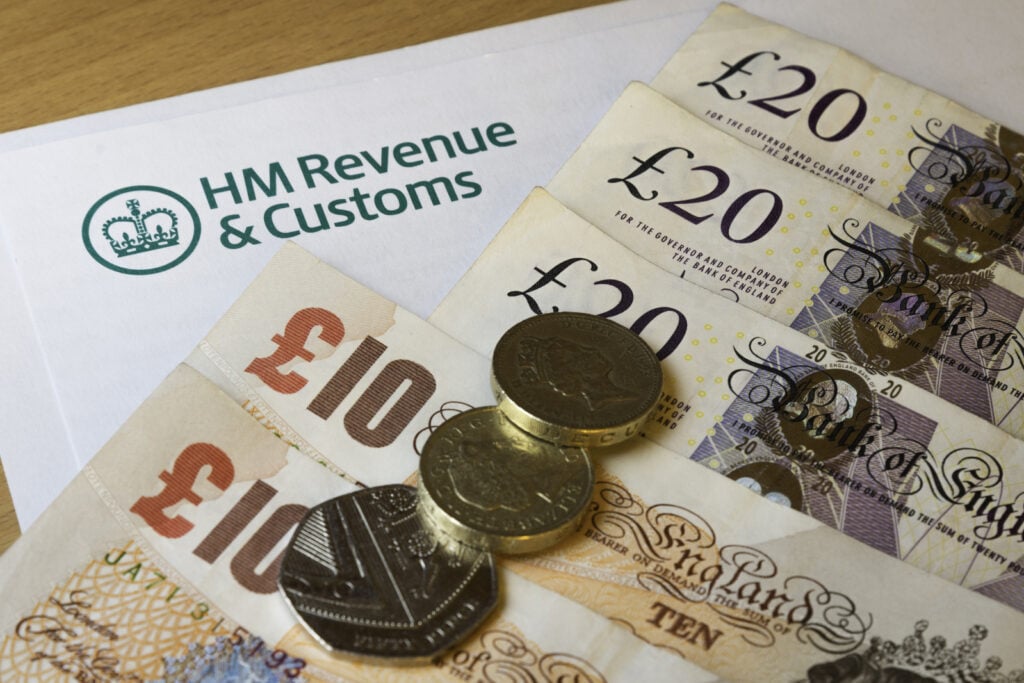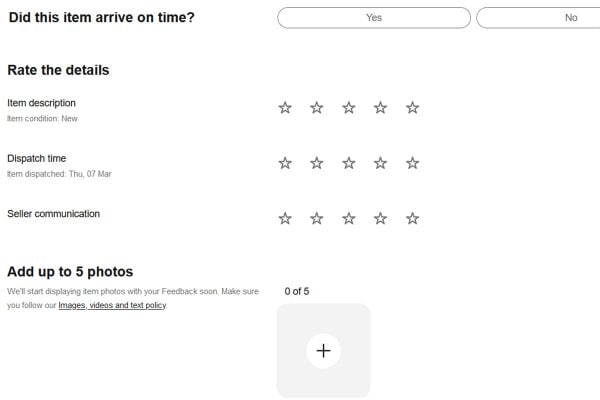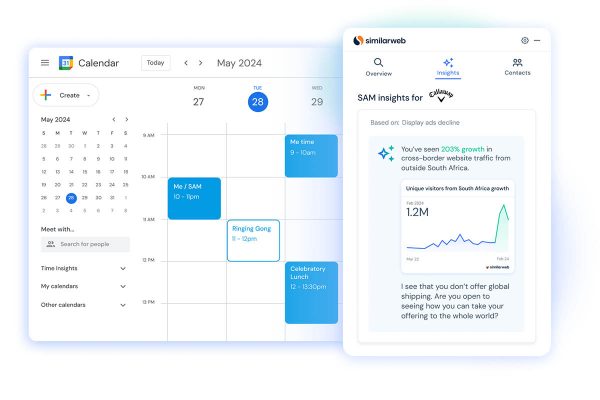The issue of VAT compliance and marketplace sellers, especially those from overseas, has long been a hot topic on Tamebay. Here’s the last post we made on the subject: MP seeks more action to tackle overseas marketplace sellers dodging VAT.
One possible solution that has been mooted on these pages is that rather than leaving it up to individual sellers to fulfil their various marketplaces, such as eBay and Amazon
And thanks to a tip-off from Taxmen, who are experts in ecommerce tax matters, it looks like in the deeper recesses of the UK’s 2017 Spring Budget document there is evidence that such an idea is on HM Government’s radar. As of the 20th March they will be asking for input into a consultation into what they term as “split payments.”
In the Annex of the budget you can find here (section 2.28) the Government says: “As announced at Budget 2016, the government is considering alternative methods of collecting VAT. This is in addition to the measures it has already introduced to tackle the problem of overseas businesses selling goods to UK consumers via online marketplaces without paying VAT. At Spring Budget 2017, the government will publish a call for evidence on 20 March 2017 on the case for a new VAT collection mechanism for online sales. This would harness technology to allow VAT to be extracted directly from transactions at the point of purchase. This type of model is often referred to as split payment.”
What do you think about this? On one hand it does put a perhaps welcome pressure on sellers on UK marketplaces who sell from overseas jurisdictions but stretch HMRC’s powers and resources. But equally, knowing how the marketplaces can sometimes operate punitively (and perhaps cack-handedly), do you really want eBay or Amazon, or anyone else, meddling in your tax affairs?
We’ll doubtless report on this story again soon when we know more.












18 Responses
Knowing how badly Amazon can get it wrong at times with marketplace accounts, I would rather close my account than have them deal with my VAT.
We have never had any problems with VAT payments in over 20 years and don’t foresee any in the future.
If Amazon became involved I can see so many issues arising and in the end it would all end up back in the lap of the marketplace seller who no doubt would end up out of pocket
With Amazon now supplying VAT invoices automatically for all EU buyers, it looks like they are getting ready for such a system to collect VAT for all sales on the platform.
Direct payment to HMRC will also stop the crooked sellers on Amazon, such as the merchants we know about that are currently using the VAT registration of a liquidated company, almost a year after the company ceased to exist!
Not sure it would work if you are selling on behalf of others
Hmmm, really not sure this is a good idea. In terms of cash flow it would be punitive with VAT paid on the date of the sale, but reclaimed VAT taking up to 4 months to come back. Could really cripple anyone struggling alread
How would a marketplace know
1) If I was VAT registered or not required to be VAT registered?
2) What VAT scheme I may be on (e.g. Flat Rate VAT or Margin Scheme) and if so what percentage VAT to collect on my behalf?
As a VAT partner of a international accounting and advisory firm in the Netherlands, I know how difficult it is nowadays to get registered for VAT with HMRC if you are from ‘overseas’. You want to remit your VAT, but HMRC makes it too difficult. So, work to do for HMRC.
So who will be accountable to HMRC. Us or Amazon.
I wouldn’t want the marketplaces to get involved but HMRC need to do much more. Not just with the overseas VAT evaders. There is no shortage of dodgy UK tax evaders.
A new competitor often pops up, and it is very obvious that they are not just evading their tax obligations, but are almost certainly trading as a “business” whilst claiming state benefits.
They usually don’t last very long but there is one thorn in my side that just won’t go away. He doesn’t get many sales but has managed to force prices down quite a lot. The fool doesn’t realise that you don’t have an advantage if all your competitors also match your new lower price.
I personally think that collecting VAT at source by the marketplace is only way make selling online a level playing field for honest sellers. Stopping both oversea’s and fraudulent local large scale sellers who’s “successful” business model is not paying the correct level of tax. With more sales online this has to be the only way that HMRC can ensure that they receive the correct VAT revenues from online sales. In austerity Britain it amazes me the Billions of pounds that are lost, this way. If they do pursue this, I hope that you can opt for monthly returns rather than quarterly, otherwise your’d be waiting up to 4 months to get your refunds on purchases, which could kill a business with tight cash flow.
Not at all sure I am comfortable with Amazon/Ebay getting that involved. Imagine the hassle of trying to resolve something if they wrongly applied it to you, its hard enough to get the simplest things resolved with the customer services of these marketplaces as it is, and the cash implications of any sort of cock-up could be really damaging.
I do think a lot more should be done by the marketplaces to ensure that those who should have VAT numbers actually have them, and that they are valid. I don’t see why they should not be responsible for that, and liable to some extent if they fail to do it.
There is a database of VAT numbers I am sure, so perhaps that could be shared. It should also perhaps be a legal requirement for Amazon/E-Bay to shut the accounts of sellers who are not registered when they should be, or are not submitting returns and paying up. That instruction should come from HMRC though, not the marketplace in my view.
I would prefer that sellers credentials were checked properly and regularly, but the issue is that is only going to get so far, it might stop the tax evasion after a time, but will do nothing to recover the tax that should have been paid up to the point the offending accounts were closed. That problem will land back in the laps of HMRC, which, I imagine, they would not view as much of a solution.
I have a nasty feeling that what the article suggests is going to come to pass before very long. Perhaps it will be implemented in a cunning way by the marketplaces, although I realise I might be being a bit hopeful there.
There are many overseas sellers who fall below the VAT thresholds, and as each country has it’s own system of registration, tax and limits, how would someone like eBay know if the seller should or shouldn’t be liable to VAT unless they volunteer that information? If you hand over a business registration number, would eBay know if that business is or isn’t liable for VAT if you’re based out of Spain, France, Russia or China for example?
eBay always used to describe themselves as a venue, but year after year they involve themselves more and more with the affairs of sellers. These incremental levels of control keep hacking away more and more at the autonomy of sellers to the point that it’s just becomes a sombre way in which to trade. As soon as a certain level of bureaucracy creeps in, the system keeps get increasingly complicated. Gone are the enjoyable, simple days of selling on eBay and just getting on with things.
Try it out as a test on all the foreign sellers first to see how it works. Most of them will probably stop selling when they realise they have to pay VAT and that their profit is gone. Wish ebay would do something about the “business” sellers on here who are not a business yet have 100s of listings of new and similar products. ebay must lose a fortune with these as they most likely list them for free and when they get a final value fee discount.
Its got to be the way to go, VAT fraud does massive damage to most online business sellers who operate legitimately, we have lost tens of thousands, probably much more, to this problem. Reporting the problem to HMRC or Amazon, eBay et al is a complete waste of time!
It should be set as a default for all business sellers, once you get over the initial 3-4 month lump, most of the negative effect on cash flow will be built in. You should need to prove you are on the flat rate scheme, if you’ve submitted previous vat returns it won’t be a problem.
I like the idea of trying it on foreign sellers as as test as these in my opinion are the main culprits. Maybe HMRC could come with some kind of exemption system if you have history of company and vat tax returns.
Whilst this makes our accountants jobs alot easier and there fee will remain the same, i cant really see how market places can get this wrong.
Its a pretty simple calculation and for businesses there withdrawals will also be net, making it for me personally a much clearer and easier method to operate.
I think anyone who has doubts needs to realise the benefit of taxing dodgers will make a huge difference generally to all registered and tax paying businesses.
I cant see why any law abiding business would not see this as a good thing.
I am torn.
It would be a good thing as some here have said, leveling the field and getting the tax dodgers (especially Chinese sellers who have a UK address so are ‘local’).
On the other hand, I sell a mixture of Standard and Zero rated items – mainly the zero reated ones.
How would that work?
If I am allowed to say what percentage each item is then this opens the way for the less than honest to register some or all of their items at zero percent.
But if not then I am likely to have to lose 20% of my zero rated sales and then have to claim it back, perhaps every 3 months. The hole that would leave in my cashflow may not be survivable.
OK, I know I’m an edge case, but there are quite a few in my position and perhaps even more who are deliberately keeping their sales below the VAT registration limit…
With the shambles of Amazon Seller ‘Support’ taking many months to deal with cases this would be a disaster if it applied to all sellers. Also the current mess of the catalogue free for all, you can be sure there would be errors over what was a zero rated product.
However I do not have a problem with Amazon collecting VAT for overseas registered FBA sellers holding their stock in UK warehouses as I don’t see any other way to get them to pay the required VAT.
the good points outweigh the bad, im all for it or at least trial on NON EU sellers 1st , a lot of non eu sellers have vat numbers that dont belong to them or submit inaccurate vat returns , this will solve the problem
would be easy for ebay/amazon to process